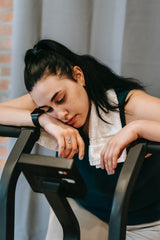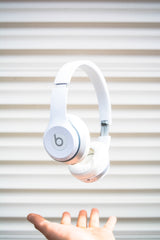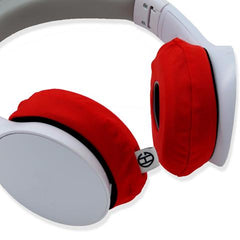What are the Benefits of Working Out in the Heat?
What are the Benefits of Working Out in the Heat?
When the temperature rises it can be tempting to switch-up our training schedules to avoid the worst of the heat. We might swap a mid-afternoon run for an early morning one. Maybe we decide to hit an air-conditioned gym instead. We might even skip exercising altogether in order to stay cool. There are times when any one of those options is the best thing to do. Exercising when it’s really hot is tough, and working out in the heat isn’t everyone’s cup of a protein shake but what if there were real benefits to be had if you did.
Acclimatising in the Heat
Acclimatisation is the biggest benefit of working out in the heat. The body is forced to adapt to the higher temperature and this often has a positive impact on your workout. If you have an upcoming event, race or competition either in a warmer climate or in a temperature range that you’re not used to, then acclimatisation gives the body space and time to adapt. It helps you sweat more efficiently, for starters, and you’ll feel more comfortable, more focused and (after a while) you won’t feel the additional effort as much.
Altitude training for athletes, sportsmen and women is something you’re probably already familiar with. Just before the Olympics, for example, you’ll often see athletes heading to the mountains. This is because there’s lower oxygen the higher above sea level you are and the body has to work harder to produce red blood cells. This increases the oxygen and blood levels sent out by the heart and its one way of increasing performance, and the same thing happens when you workout in the heat.
There’s the added bonus of increased blood plasma volume which means there’s more liquid available for sweating. You’ll sweat more often and sooner. This change happens pretty early on in the acclimatization process.
Your heart rate will be reduced when training at your normal intensity in the heat. You’ll have a reduction in core temperature, too.
It’s not all good news, however. Health.com wrote about a study at Nebraska University at Omaha in the school of Kinesiology. Researchers wanted to find out if there was an optimal temperature to exercise at and what impact this could have on Mitochondrial disease.
According to the Cleveland Clinic, Mitochondrial diseases are “long-term, genetic, often inherited disorders that occur when mitochondria fail to produce enough energy for the body to function properly.” Interestingly, the study found that participants performed better in cold temperatures than hot and heat didn’t have a positive impact at all.
Health.com went on to report that “Slivka says his team found that a single bout of exercise in the heat isn’t as effective for mitochondrial development as a single bout of exercise completed at room temperature.”
So whilst there are benefits to working out in the heat, it’s also absolutely fine to keep exercising in cooler temperatures, too.
How Often Should I Train in the Heat?
Podium Runner recommends exercising 2-3 times per week in the heat for between 20 - 90 minutes.
What Are the Dangers of Working Out in the Heat?
Dehydration is one of the most common issues for anyone exercising in hot temperatures. This is when the body loses more fluid than it’s able to take in. When we exercise we lose moisture through the skin through sweat. Mild dehydration isn’t anything that can’t be fixed by taking on fluids but it can be dangerous if you’re exerting yourself without drinking enough liquid to compensate for what you’ve lost.
Heat cramps are brief but painful muscle spasms believed to be caused by a lack of electrolytes. You can avoid getting heat cramps by staying hydrated.
Sweat has nowhere to go in humid conditions because the air is already full of moisture. The body’s temperature regulator, therefore, can’t do its job sufficiently. Sweat remains on the skin which means the body’s core temperature can rise leading to heatstroke.
Heat exhaustion can be a precursor to heat stroke if it’s not treated properly. Symptoms of heat exhaustion can include dehydration, confusion, vomiting, pale skin, rapid heart rate and heavy sweating.
Heatstroke is a very serious condition that can cause serious damage to the body’s internal organs including the heart, kidneys and brain. Heatstroke is when the body’s core temperature rises to over 104 degrees and is usually accompanied by confusion, altered patterns of speech, slurring, seizures, vomiting, headaches etc. Left untreated, heatstroke can kill.
How to Stay Healthy When Exercising in the Heat
Remember to keep hydrated. Carry a water bottle with you if you’re planning an extended workout outside.
Work your way up to the bigger workouts. When the mercury starts rising start slowly, and then increase the length and intensity of your exercises. Give your body the chance to acclimatize.
Moisture-wicking clothing will help you to stay cool and be more comfortable. Choose light colours and remember to use sunscreen if you’re heading out in the sunshine.
If you think it’s too hot, then don’t go out and exercise. Listen to your body. You could always exercise inside instead or switch the time you workout to when the temperature is lower. There are plenty of low-impact exercises you can do either indoors or outdoors. Skipping a training session or two when it’s hot won’t ruin your fitness but heatstroke can. Don’t risk it, and if you do then make sure you’re prepared. There are benefits to working outside in the hot weather but there are risks, too, and you should be mindful of them.
If you’re working out in the heat and wearing headphones, then don’t forget to add a pair of sweat-proof headphone covers to the cushions. Sweat might be good for our body but it’s bad for our headphones and without moisture-wicking covers will kill your Beats, Bose, Sony, Sennheiser, Skullcandy, Philips,...
How well do you workout in the warmer weather and what are your tips for anyone ready to get started in the higher temperatures?








